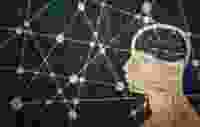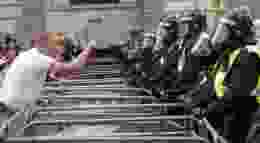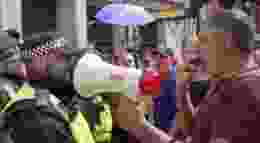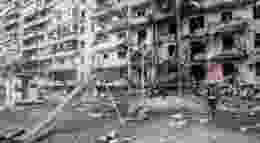
Human Consciousness and the Dangers of A.I.
Ken Crawford considers how the interplay of consciousness and AI might operate and the extent to which Jung and Neumann's work continues to offer a theoretical basis for further consideration.
I love to read about tech that pushes the boundaries. The best example I have read is Iain Banks sci-fi Culture series that envisions a far future in which genetically engineered humans live in symbiotic relationship with vastly superior AI Minds. The Minds run the show in the galaxy with humanity benevolently cared for by a fleet of smart, good humoured drones. It remains a dangerous galaxy and the risk of death endures, however human consciousness can be 'backed up', uploaded to the Minds and then downloaded to a newly grown body. It makes for an attractive future and some aspects of it may not be that far around the corner. Dr. Ian Pearson, a futurologist believes some of these experiences will be common around 2050 and he has created a bucket list of experiences to hit before he turns 100. Unfortunately there are some unexplored dangers in what he suggests, which I wrote to him about when his article was published and I would like to develop those points further here.
Warning calls about the dangers of artificial intelligence are already a mainstream phenomenon, from the Hollywood dramatizations of the Terminator to statements from high profile figures such as Stephen Hawking and Elon Musk. Such warnings typically focus on humanity being outperformed and ultimately attacked or fully replaced by AI. I don't dispute the validity of these dangers, given the passage of sufficient time. Moreover humanity is not good at putting limits on itself. If it is within our ability to create a superior intelligence we will do so regardless of the dangers at some point in the future. As with the other possible extinction events such as nuclear war, nanotechnology and genetic engineering, it falls to the people of any given time to understand the risks as best as possible and take the wisest path. By way of my own contribution to this process I would like to raise the dangers that AI poses to human consciousness, including its relationship with the unconscious psyche, something I do not think has been explored.
The concept of evolutionary biology is now well established. Charles Darwin published On the Origin of Species in 1859, laying the foundation for other scientists to draw on the wealth of evidence in archaeological records and the natural world to expand and develop his theory over many decades. Matters become more problematic when we turn to human consciousness since this is the field of psychology and the evidence trail is harder to establish and follow, in comparison to the biological trail left in bones and other physical material. However a foundation for understanding consciousness was laid by Carl Jung who was able to draw on great thinkers like Kant, Nietzsche and Freud, adding in his own radical and brilliant insights. One of Jung's students, Eric Neumann, published The Origin and History of Consciousness in 1949, described by Jung as the book he wished he had written. If we leave aside Jung's Red Book, published in 2008, long after Jung's death, there has not been great progress in understanding human consciousness, certainly not to match the progress we have made in understanding human biology. As such we are left with Jung and Neumann as arguably the core body of knowledge but I would welcome comments from readers who feel these authors have been surpassed.
Neumann lays out evidence across multiple creation myths that the world begins with the coming of light, which he interprets as the initial emergence of human consciousness from the darkness of the collective. In the primordial stages of humanity our ego consciousness was incredibly fragile, with a preference to operate as a collective where group instinct ruled. Primitive humanity experienced the world in what we might conceptualize as a psychedelic dream state. The difference between the inner and outer world did not exist as we now experience it, with commands coming from animal spirits and magical beings. The journey to the high pitch of consciousness we experience today has required enormous mental effort with gradual progress over generations, reaching a peak in western civilization given our capacity for a high work rate combined with individual thought and action, all accentuated through scientific advancement. This progress is not without cost though since never before has consciousness become so distant from the unconscious, a concept that needs some exploration.
The unconscious, in Jungian psychology, compromises not only a personal unconscious that sits below our waking awareness but also a wider collective unconscious containing the experience of everyone who ever lived. It is our cultural memory, experienced reactively through symbols and stories in our dreams or proactively by entering a suitable trance state, more controversially, by taking psychedelic drugs. Just as other species in the animal kingdom somehow understand a need to make certain actions and behaviors without ever being shown, the collective unconscious provides humanity's reservoir of accumulated experience to draw on, in ways and for reasons that are not fully understood.
In The Origin and History of Consciousness Neumann develops arguments for what the impact will be of increasing the pitch of consciousness such that it moves yet further away from the unconscious. These impacts include ego inflation (overconfidence, megalomania, senseless optimism) neuroticism, depression, loss of wholeness and loss of creativity. I am not in that mindless anti-Trump camp that criticizes everything the President says and does but it must be said the democratically elected leader of the free world in 2018 does not lack for ego. Likewise, I am not anti-capitalist but it seems self-evident that industry wields great power at both the political and cultural level in the West and this power is constellating around a small number of global corporations. Use of anti-depressants is now at record highs and accelerating. We can take these as broad signals that the trend for ego consciousness development in the West has continued its historic path. Neumann also argued that a failure to recognize and process the unconscious would lead to a build-up of energy charge that would eventually lead to a projection on the outside world, where the ego would experience it as contents of the outer world. The subject of the projection, their words and actions would not be perceived accurately but rather through the lens of the projection. As Jung put it "what we do not make conscious emerges as fate".
What can be applied to our consideration of AI from this body of work? Firstly, though what is required is a reconnection with the unconscious, I think the development of AI superior to that of humans would violently and dramatically reverse the trend in the growth of ego consciousness that stretches back to primordial times. If we can be out-though by AI, what is our purpose? Unless sufficient purpose can be generated for our wider culture, not just a few niche specialists, it seems likely our ego consciousness would abruptly regress and become closer to the collective. Depending on how far this process went and what form it took, it seems plausible that our civilisation would become more instinctive, less intellectually thoughtful, and more prone to impulsive group action, more easily manipulated by a charismatic dominant personality. Rioting, tribalism and social disorder seem the likely expressions of this condition. This would likely be true even if our basic needs were met by a universal basic income. To draw on another Jung quote "man cannot stand a meaningless existence".
Secondly, the notion of uploading consciousness to the Cloud or some other software format and blending it with AI makes for a radical break from the unconscious, especially if it was undertaken on a mass scale. Would we dream in such a state and if not, how could the collective unconscious and hence our cultural inheritance stay with us and tell its story? If Neumann's theory of the build-up in energy charge is correct, it is hard to know how the excess would discharge. I suspect not in a way we would enjoy. If what we fail to make conscious emerges as fate and the link between the individual and the unconscious is effectively severed, there would seem great scope for fate to effect wide-ranging impacts. Perhaps society would become wildly unstable as people took enormous risks on the basis of greatly inflated ego and overconfidence.
To sum up, in considering how the interplay of consciousness and AI might operate, the work of Jung and Neumann offers a theoretical basis for further consideration. The work of Jung and Neumann is now 70 years old and the stage is set for future thinkers to apply this body of work to the contemporary challenges posed by AI. Jung believed the collective unconscious was a wellspring of creativity. Through our dreams and waking moments of inspiration, perhaps the collective unconscious has solutions of its own to offer to those who are suitably attentive.













